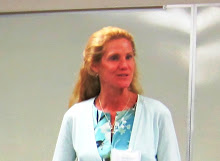Governor Patrick commissioned Spectrum Gaming to provide an independent analysis of the market, impacts and review of the casino legislation that he proposed October 2007 and was subsequently killed by the House of Representatives in the spring of 2008.
The report has been released with an eleven page executive summary and a three hundred one page full report .
The town of Monson is highlighted in the report. I had the pleasure of meeting the VP of Spectrum who visited our community and attended a meeting of the western MA Casino Task Force. The firm's representative was an intelligent man who listened attentively to concerns expressed by Selectmen and Town Councillors in our region. It was a pleasure to meet him and I am pleased that our community was considered in the report. The number one concern of Monson residents in a community survey about casinos was the "character of the town". We like our rural town and have grave concerns about the potential siting of a casino in an abutting community. The fiscal impacts of student surge are highlighted in the report.
The situation in Monson
Monson is a rural, residential town (8,359) in western Massachusetts – in many ways a typical small town in the state. Its school district had a school enrollment of 1,525 for the 2007-08 school year. It spent $14.4 million to educate its students, or $9,075 per pupil. Of that amount, 36 percent came from Monson taxpayers and 64 percent came from state aid.
Town leaders said they fear that a major casino resort built near Monson would cause the student population to swell from casino-employee families seeking to live close to their employer. Each non-special education student that enters Monson Public Schools would inflate the district‘s budget by $9,075. The amount could be higher if the surge included students who required special education or English language learners (ELL); there currently are no ELLs in Monson Public Schools. (We note that many of the families that are attracted to a region because it offers casino employment come from non-English speaking cultures. This often requires a concomitant investment in unanticipated programs such as teaching English as a second language.)
Further, the Monson elementary and middle school populations are ―near capacity and the high school is at more than 85 percent capacity. School transportation, which is funded locally, is another costly concern, according to Kathleen Conley Norbut, a Monson Selectman and Chairman of the town‘s Local Casino Study Committee. ―Additional buses and fuel to service additional routes and students without state assistance is untenable, she said. The school district already assesses students in grades 7-12 $1 per day, or $180 per year, to ride the school bus. (Update: Price increase for 2008-2009 - whoops, let me find our bill $210 for the year-KCN). With an average single-family property tax bill in the town of $2,825 for fiscal year 2008, town leaders say they would be forced to raise property taxes – perhaps dramatically – to adequately fund a surge in school enrollment. Most of that burden would fall on the residents, as residential property taxes account for 93 percent of the town‘s annual tax receipts. Norbut noted that in other nearby towns, such as Brimfield, Holland and Wales, residents account for closer to 100 percent of the local-tax burden. We recognize that even small changes in school enrollment in small communities can have a significant impact on school budgets. The Commonwealth must be prepared to offer financial assistance to such communities from mitigation programs, irrespective of the size of such impacts.
You betcha.
Thursday, August 7, 2008
Spectrum Gaming Consulting Report Released
Labels:
casinos,
governor Patrick,
Massachusetts,
monson,
Spectrum Gaming
Subscribe to:
Post Comments (Atom)

1 comment:
Nice presentation of the information.
Post a Comment